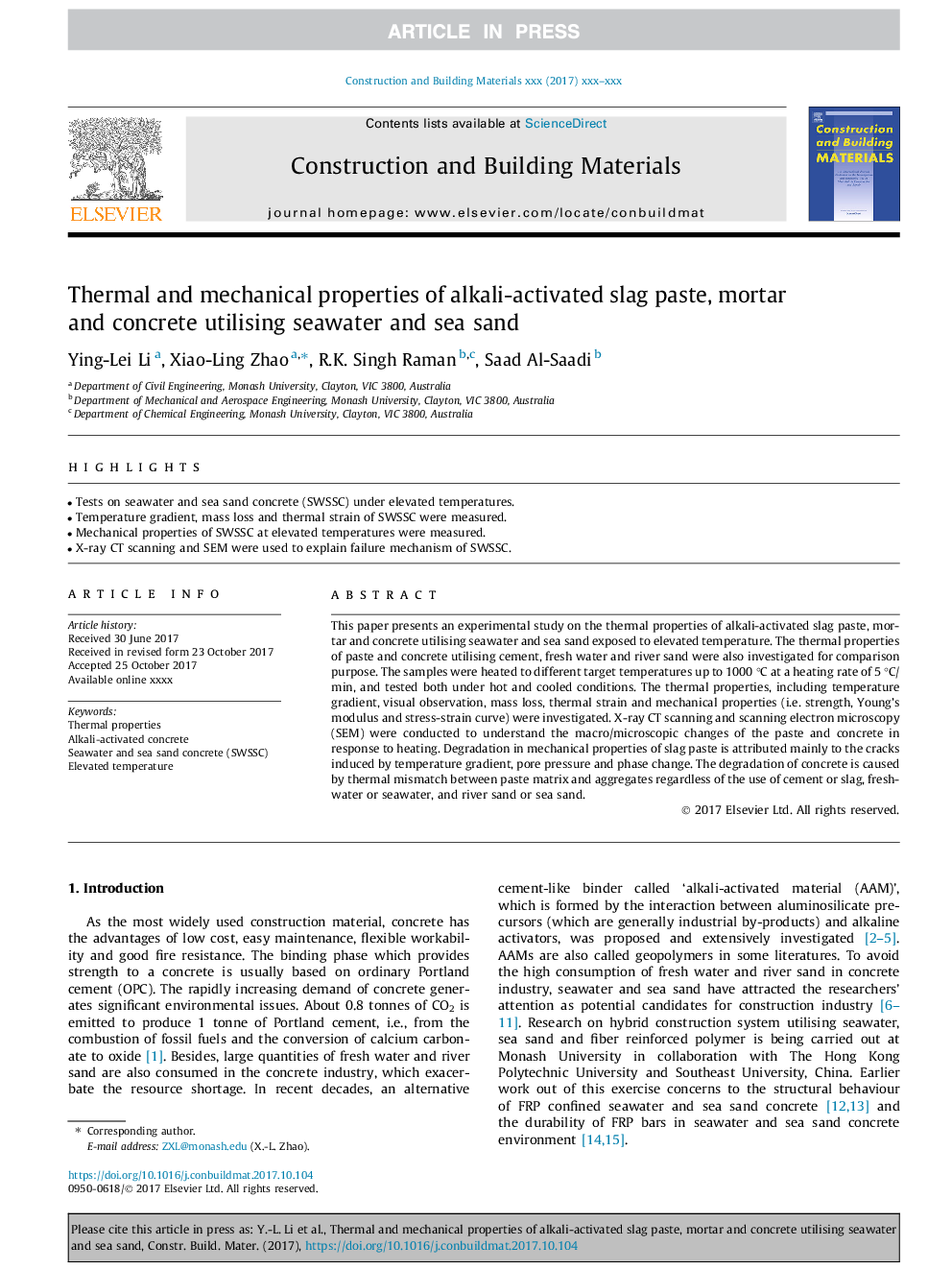| Article ID | Journal | Published Year | Pages | File Type |
|---|---|---|---|---|
| 6717529 | Construction and Building Materials | 2018 | 21 Pages |
Abstract
This paper presents an experimental study on the thermal properties of alkali-activated slag paste, mortar and concrete utilising seawater and sea sand exposed to elevated temperature. The thermal properties of paste and concrete utilising cement, fresh water and river sand were also investigated for comparison purpose. The samples were heated to different target temperatures up to 1000â¯Â°C at a heating rate of 5â¯Â°C/min, and tested both under hot and cooled conditions. The thermal properties, including temperature gradient, visual observation, mass loss, thermal strain and mechanical properties (i.e. strength, Young's modulus and stress-strain curve) were investigated. X-ray CT scanning and scanning electron microscopy (SEM) were conducted to understand the macro/microscopic changes of the paste and concrete in response to heating. Degradation in mechanical properties of slag paste is attributed mainly to the cracks induced by temperature gradient, pore pressure and phase change. The degradation of concrete is caused by thermal mismatch between paste matrix and aggregates regardless of the use of cement or slag, freshwater or seawater, and river sand or sea sand.
Keywords
Related Topics
Physical Sciences and Engineering
Engineering
Civil and Structural Engineering
Authors
Ying-Lei Li, Xiao-Ling Zhao, R.K. Singh Raman, Saad Al-Saadi,
